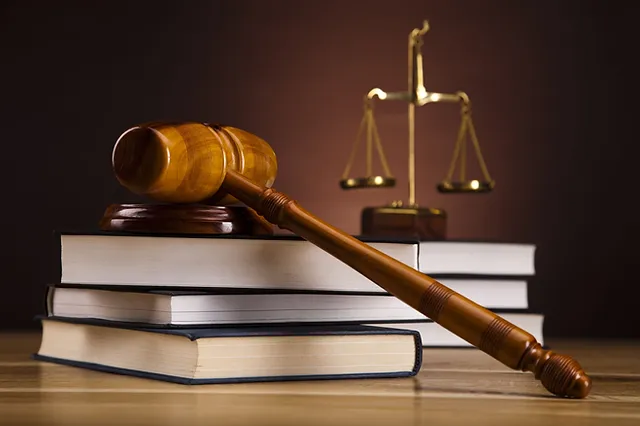How to Understand Florida Appeals Processes

Understanding the Florida appeals process is crucial if you're involved in an appeal or considering filing one. The appellate process can be complex, involving specific procedures and legal standards that differ from those of a trial court. Here’s a detailed guide to help you navigate the Florida appeals process effectively.
1. Understanding the Basis for an Appeal
In Florida, an appeal is not a new trial but a review of the lower court’s decision. The basis for an appeal generally involves legal errors or procedural mistakes made during the trial that could have impacted the outcome. Common grounds for appeal include:
- Errors in the application of the law: Incorrect interpretation or application of legal principles.
- Procedural errors: Mistakes in how the trial was conducted, such as improper admission of evidence or incorrect jury instructions.
- Insufficient evidence: Claims that the trial court’s decision was not supported by the evidence presented.
It’s essential to identify specific errors in the trial court’s proceedings to form a strong basis for your appeal.
2. Initiating the Appeal
To start an florida appeals, you must file a notice of appeal with the appropriate appellate court. This document informs the court and the opposing party that you intend to challenge the lower court’s decision. The notice of appeal must be filed within a specific timeframe, typically 30 days from the date of the final judgment or order being appealed.
Failure to file the notice within this period can result in losing your right to appeal.
3. Preparing the Record on Appeal
The record on appeal consists of all documents, transcripts, and evidence from the trial court proceedings that are relevant to the appeal. This includes:
- Transcripts of trial proceedings: Written records of what was said during the trial.
- Exhibits and evidence: Any physical evidence or documents presented during the trial.
- Pleadings and motions: Legal documents filed in the trial court.
The record is crucial because the appellate court will review it to determine whether the trial court made errors in its decision. Preparing the record involves working with the trial court clerk to ensure all necessary documents are included.
4. Drafting and Filing the Briefs
Both parties in an appeal must submit written arguments known as briefs. These briefs present the legal arguments and support them with references to the record and legal precedents. There are typically three types of briefs:
- Appellant’s Brief: The party filing the appeal (the appellant) submits this brief, outlining the errors alleged and the reasons why the decision should be reversed or modified.
- Appellee’s Brief: The opposing party (the appellee) submits this brief, arguing why the trial court’s decision should be upheld.
- Reply Brief: The appellant may submit this brief to address arguments raised in the appellee’s brief.
Briefs must be well-organized, clearly written, and supported by relevant legal authorities and evidence from the record.
5. Oral Arguments
In some cases, the appellate court may schedule oral arguments, where each party has the opportunity to present their case in person. During oral arguments, attorneys may:
- Clarify points made in their briefs.
- Respond to questions from the judges.
- Address specific legal issues or concerns raised by the court.
Oral arguments provide a chance to further persuade the court and clarify any complex issues.
6. Understanding the Appellate Court’s Decision
After reviewing the briefs and hearing oral arguments (if applicable), the appellate court will issue a written opinion. The decision may:
- Affirm the lower court’s decision, meaning it is upheld.
- Reverse the lower court’s decision, meaning it is overturned.
- Remand the case, sending it back to the trial court for further proceedings or a new trial.
The opinion will include a detailed explanation of the court’s reasoning and how the legal errors or procedural issues were addressed.
7. Post-Decision Actions
Depending on the outcome of the appeal, there may be additional steps:
- Petition for Rehearing: If you believe the appellate court made an error, you can file a petition for rehearing, requesting the court to reconsider its decision.
- Appeal to the Florida Supreme Court: In certain cases, you may seek further review by the Florida Supreme Court, especially if the case involves significant legal issues or conflicts between appellate decisions.
Each of these steps has specific deadlines and requirements that must be followed.
8. Seeking Professional Guidance
Navigating the Florida appeals process can be challenging, and it’s often beneficial to seek the assistance of an experienced appeals attorney. An attorney specializing in appellate law can provide expert guidance, help prepare and present your case effectively, and ensure that all procedural requirements are met.
In Closer
Understanding the Florida appeals process involves recognizing the basis for an appeal, initiating the process with a notice of appeal, preparing the record, drafting and filing briefs, and potentially participating in oral arguments. By following these steps and seeking professional assistance when needed, you can effectively navigate the complexities of the appellate system an
- Art
- Causes
- Crafts
- Dance
- Drinks
- Film
- Fitness
- Food
- Oyunlar
- Gardening
- Health
- Home
- Literature
- Music
- Networking
- Other
- Party
- Religion
- Shopping
- Sports
- Theater
- Wellness


